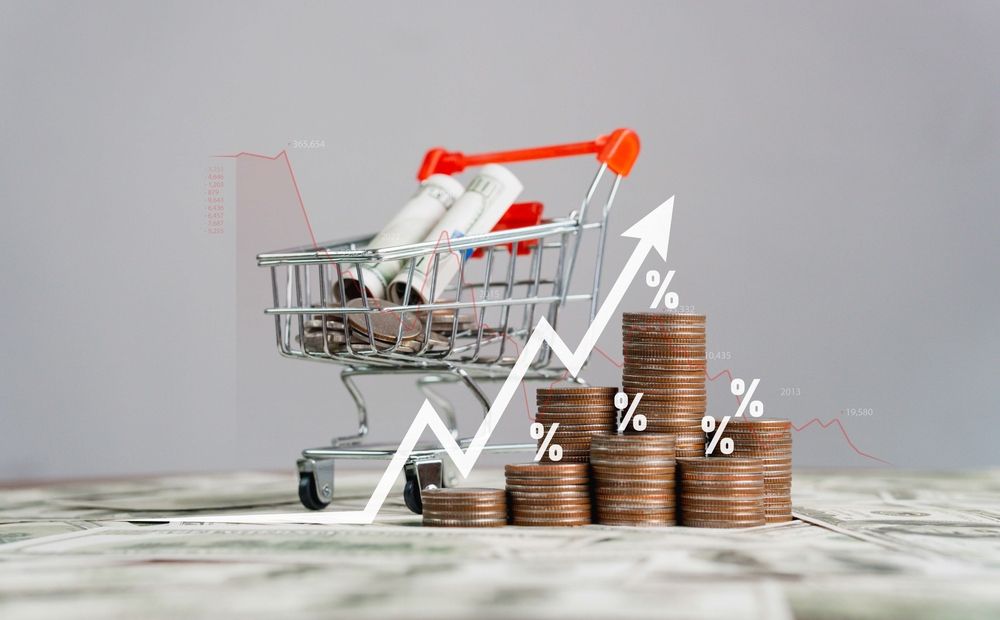
Welcome to our comprehensive guide on how inflation impacts your debt and the various repayment strategies that can help you navigate through these economic tides. With the rising cost of living and fluctuating economic conditions, understanding the relationship between inflation and debt is crucial for maintaining financial health. In this article, we’ll delve into the intricacies of how inflation affects your debt obligations and explore effective strategies to manage and repay your debt wisely.
Understanding Inflation: The Basics
Before we tackle how inflation affects your debt, it’s essential to grasp what inflation is. Simply put, inflation is the rate at which the general level of prices for goods and services is rising, and subsequently, the purchasing power of currency is falling. Central banks attempt to limit inflation — and avoid deflation — to keep the economy running smoothly.
Inflation can have both direct and indirect impacts on your debt. For example, if you have a fixed-rate loan, the actual cost of repaying that debt can decrease over time with inflation, as you’re repaying with money that’s worth less than when you initially borrowed it. Conversely, if you have variable-rate debt, such as a credit card or a variable-rate mortgage, your interest rate could increase as inflation rises, leading to higher payments.
The Impact of Inflation on Different Types of Debt
Not all debt is created equal, and inflation can affect various types of debt differently. For fixed-rate debt, such as a fixed-rate mortgage or a federal student loan, inflation can be advantageous over the long term. As inflation rises, your payments remain the same, which means you’re paying back your debt with money that’s less valuable than when you borrowed it, effectively decreasing the real cost of the debt.
However, with variable-rate debt, such as home equity lines of credit (HELOCs) or adjustable-rate mortgages (ARMs), the scenario is quite different. These interest rates typically move with the market, which means they can rise in times of inflation, increasing the cost of borrowing. Credit card debt is also variable and can become more expensive during inflationary periods.
Strategies for Managing Debt During Inflation
Given the potential for inflation to increase the cost of variable-rate debt, it’s important to have strategies in place to manage your obligations. One approach is to prioritize paying off high-interest, variable-rate debt first. This can help minimize the amount of interest you’ll pay over time, especially if rates continue to rise.
Another strategy is to consider refinancing or consolidating your debts. Refinancing can allow you to lock in a lower interest rate before rates increase further. Debt consolidation can simplify your payments and potentially secure a lower overall interest rate, making your debt more manageable during inflationary times.
Fixed-Rate Debt: A Safe Haven in Inflationary Times?
For those with fixed-rate debt, inflation can serve as a shield against the eroding value of money. If you have fixed-rate loans, especially with low-interest rates, it might be beneficial to focus on investing or saving any extra money instead of accelerating your debt repayment. This is because the real interest rate (the nominal rate minus inflation) on your debt could become negative, meaning the purchasing power of your debt is decreasing over time.
Adjusting Your Budget to Cope with Inflation
Inflation not only affects your debt but also your overall budget. As prices for goods and services increase, you may find that your existing budget no longer stretches as far as it used to. To adapt, you may need to revisit your budget and adjust your spending habits. Cutting non-essential expenses and finding ways to increase your income can help offset the effects of inflation and allow you to continue making timely debt payments without sacrificing other financial goals.
Inflation’s impact on debt is multifaceted, and it requires a strategic approach to manage effectively. By understanding how different types of debt react to inflation, prioritizing high-interest debts, considering refinancing options, and adjusting your budget, you can mitigate the effects of inflation on your financial obligations. Remember, the goal is not just to repay debt but to do so in a way that aligns with your overall financial health and goals. Keep a close eye on inflation trends, stay informed about your debt options, and don’t hesitate to seek advice from financial professionals when needed. With the right strategies, you can navigate through inflationary periods with confidence and emerge with your finances intact and even thriving.
